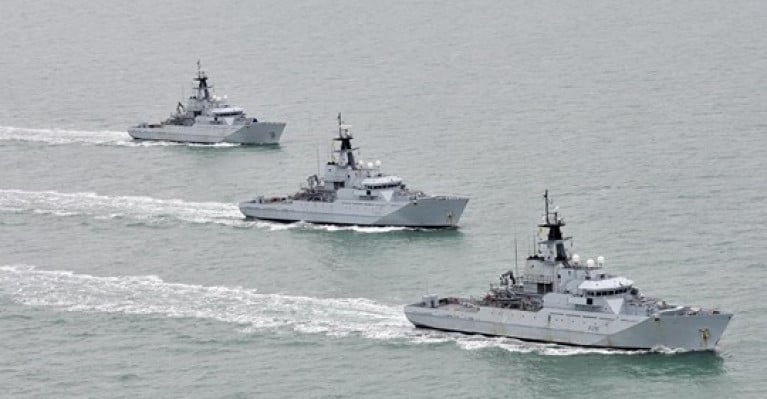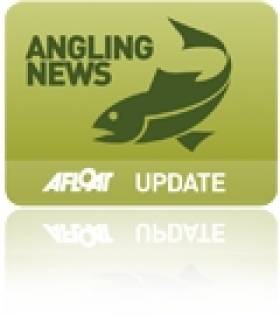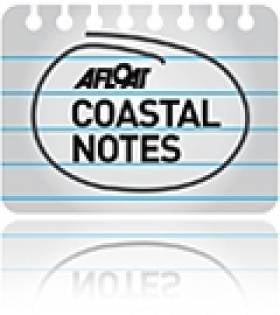Displaying items by tag: Stormont
Stormont Debates Motion Calling for Action to Save Lough Neagh from ‘Ecological Catastrophe’
Three Sinn Féin MLAs have brought a motion to the newly restored Stormont Assembly for action to save Lough Neagh from its pollution crisis, as The Irish Times reports.
MLA for North Antrim, Philip McGuigan described the situation on the lough as an “ecological catastrophe”.
“The work of saving Lough Neagh and repairing the damage to its ecology and environment and that of its tributaries and surrounding land must be a top priority for the Executive in the time ahead,” he told the Assembly on Tuesday (13 February).
The motion comes on the heels of last summer’s spate of toxic blue-green algae blooms, which caused the deaths of numerous pets and was blamed for the collapse of the lough’s renowned native eel fishery.
Untreated wastewater and agricultural run-off — not to mention climate change, invasive species such as the zebra mussel, and political inaction due to the collapse of the Northern Ireland Executive — have been singled out as reasons behind the current crisis.
The Irish Times has more on the story HERE.
The UK's Royal Navy will only deploy vessels to protect fishing waters surrounding Northern Ireland if requested to do so by the Stormont Executive, the British Government has said.
It was revealed the UK had "run live exercises" that involve scrambling "naval vessels to respond to threats of illegal fishing in our soon-to-be sovereign waters" as part of efforts to prepare for a no-deal Brexit.
The Ministry of Defence (MoD) confirmed that four Royal Navy gunboats have been placed on stand-by to guard British waters from EU trawlers if there is no agreement as Afloat reported yesterday.
Reports also suggest that UK Government ministers are considering beefing up Navy powers in legislation to authorise them to board and arrest fishermen found to be contravening post-Brexit rules.
However, the MoD told the Belfast Telegraph that gunships will only be deployed around Northern Ireland if requested to do so.
More details from the newspaper here.
NI Anglers Urged To Review Shrimp Bait Ban Proposals
#Angling - The use of prawns and shrimp as bait in salmon angling could be banned in Northern Ireland under proposed restrictions on salmon and sea trout fishing, as Farming Life reports.
Aside from the bait regulations, Stormont is also putting forward a ban on commercial salmon netting and the introduction of a catch-and-release scheme for sport anglers in an effort to reverse dwindling salmon numbers in Ulster's inland waterways.
The moves come following an earlier voluntary ban on offshore salmon fishing in an effort to bolster wild salmon stocks which were last year feared to be "around dodo levels".
Similar restrictions were proposed this year for the River Suir - although anglers in Enniscorthy won support from Inland Fisheries Ireland last year in their call to lift a shrimp bait ban on their downstream fishery on the River Slaney.
Ulster Angling Federation chair Jim Haughey has urged angling club officials across Northern Ireland to study the consultation document published by the Department of Culture, Arts and Leisure with a view to making informed submissions on the proposed changes.
Farming Life has much more on the story HERE.
Schoolkids Urge Stormont to Save NI's Coastline
Hundreds of schoolchildren protested at Stormont last week to call for new laws to protect Northern Ireland's coastal waters, the Belfast Telegraph reports.
The group handed a petition with 4,000 signatures to Environment Minister Alex Attwood urging the introduction of a Marine Bill which would provide special marine conservation zones and restrict harmful maritime activities.
At present, Northern Ireland is the only part of the UK with no legal safeguards for the protection of its coastline.
The Northern Ireland Marine Task Force, which is heading the campaign, says "over-reaching legislation" is needed to preserve the North's marine wildlife and plantlife habitats.
The Belfast Telegraph has more in the story HERE.


























































